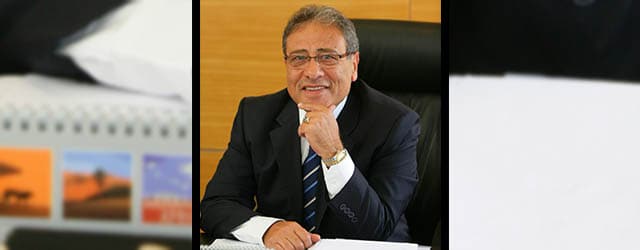Q&A with Moataz Natafji, general manager, BLOM Development Bank, the Islamic subsidiary of BLOM Bank, Beirut, Lebanon

Table Of Contents
Global Finance: How would you describe the current state of the Islamic finance market in Lebanon?
Moataz Natafji: Total deposits within the whole banking system are US$152 billion. The Islamic banks’ share is only about a billion dollars. Our share of the Lebanese market is around 23%. There are four main Islamic banks operating in Lebanon: ours (Blom Development Bank); the Lebanese Islamic Bank; Al Baraka Bank; and the Arab Finance House, which is 37%-owned by Qatar Islamic Bank. Growth has been slowed up in large part by the Lebanese authorities’ lack of support. The Central Bank of Lebanon first authorized Islamic banking in 2004, and subsequent] circulars laid out a regulatory framework. But there was no follow-up at other ministries. Islamic banks simply don’t have the tools required to function as well as they could.
For instance, if I want to provide long-term financing for a client, say for a house, I must use an ijarah (leasing) structure. That means I buy the house and then I rent it to him for up to 25 years. But I can never change the financial structure of the transaction—for the entire 25 years. But you can’t do a murabaha for 25 years. (Murabaha, where one party buys an asset for cash and sells it to another for deferred payments, is the basis for most financing in Islamic banking.) It is a fixed-rate financing. I cannot go for fixed-rate financing for such a long period. The problem is that Lebanon’s Finance Ministry hasn’t yet changed the rules to allow Islamic banks to use other forms of financing.
GF: Given these limitations, what are your growth strategies?
Natafji: We invented something that our shariah board approved. We may not be able to do the ijarah, but we are able to do a floating commodity murabaha, in the sense that I do one murabaha for the first year I buy the house. I sell it (to the home buyer) for a year. He pays 12 installments. I make the 13th installment, which is the remaining balance. Then I finance that through another murabaha—so it’s called a revolving murabaha.
We are also working with the central bank to try to capture a piece of the market in low-cost financing to certain projects in energy and other sectors. Currently, it’s difficult because the structure of these deals is designed only with conventional banks in mind, not Islamic finance.
GF: Has the Syrian civil war had an impact on your plans?
Natafji: It has impacted the growth of Lebanon’s entire banking system. Syrians were more or less accustomed to using Lebanese banks, but because of the sanctions, we are not dealing with them at all.
GF: If hostilities end, what would you like to do?
Natafji: We might expand into areas where Islamic banking is more popular and clients more shariah-compliant. There is no need to be physically there, because Jordan, Syria, they are all close.”



